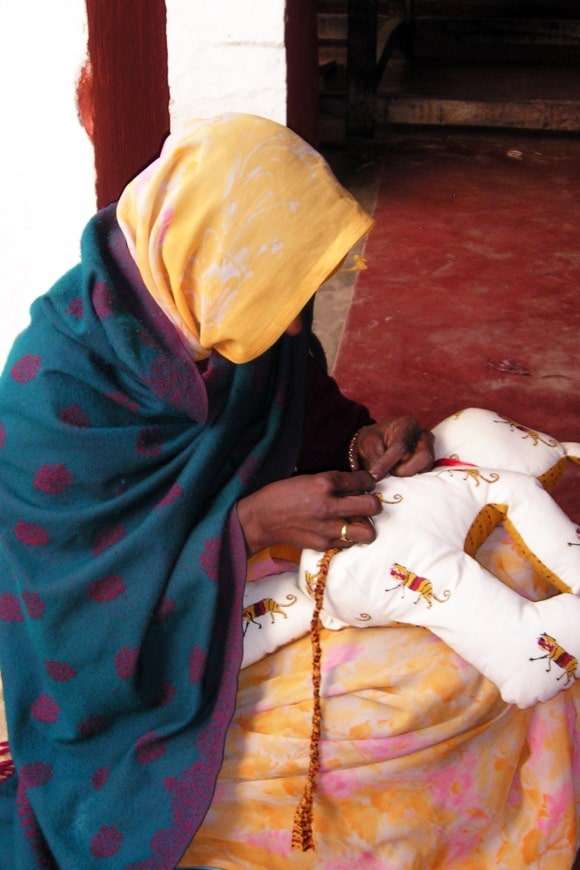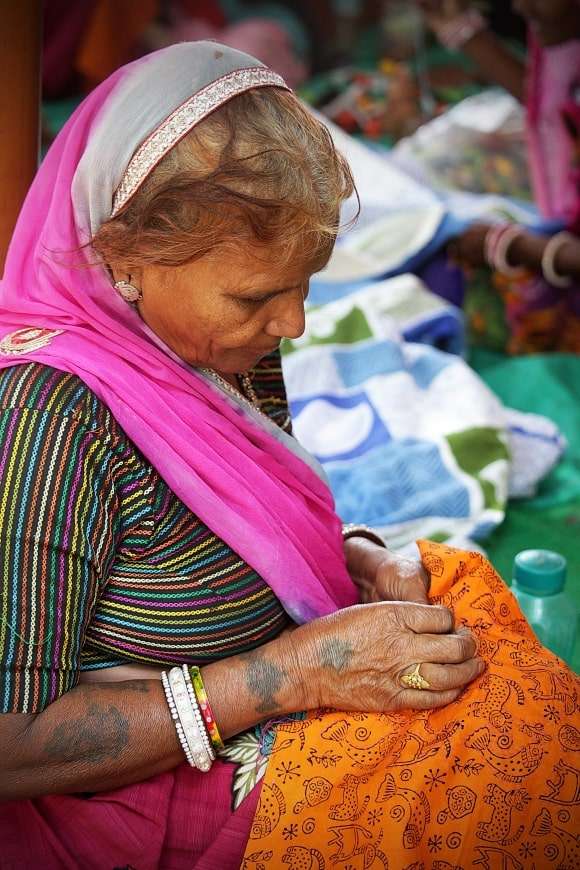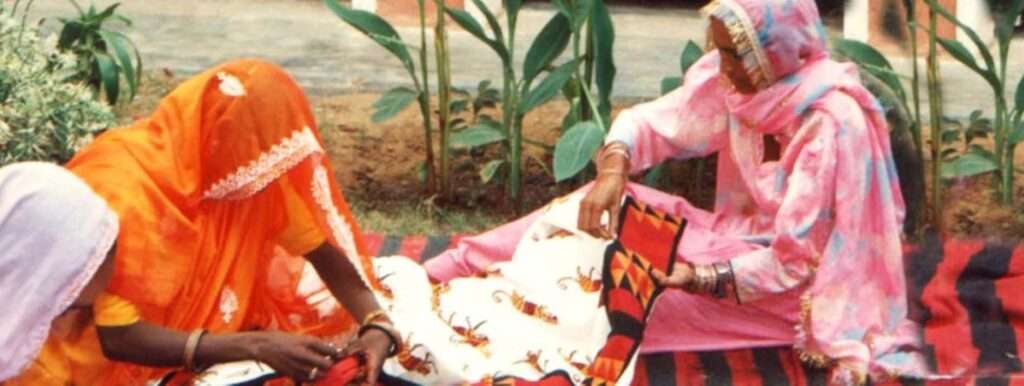
dastkar ranthambore
In one of its earliest and best known achievements, 20 years ago Dastkar was asked to develop a rural income-generation programme in the villages around the Ranthambore Tiger Reserve, with a special focus on women.
The Dastkar Ranthambore Project became a fine example of Dastkar’s work on reviving crafts and establishing craftgroups with unique identities. In this instance, Dastkar’s efforts towards revitalising local craft communities resulted in the revival of existing local skills and traditions in the Sawai-Madhopur district of Rajasthan, an area where craftspeople had almost given up their craft traditions and were working as agricultural labour.
With the creation of a Crafts Centre, the Dastkari Kendra, Dastkar organised workshops for the local craftspeople incorporating contemporary design, product development and production systems training, including costing and pricing. With the assistance of designers from NID, NIFT and other external consultants, skill development workshops were run covering tailoring, cutting and sizing, indigo and natural dye training as well as improving firing and glazing skills for local potters.
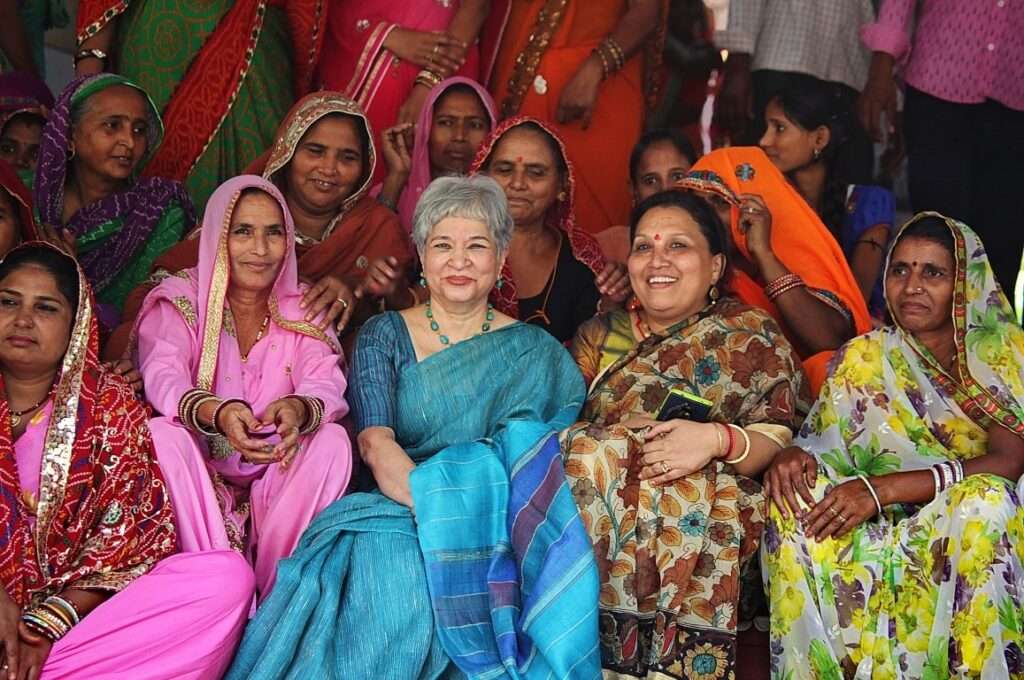

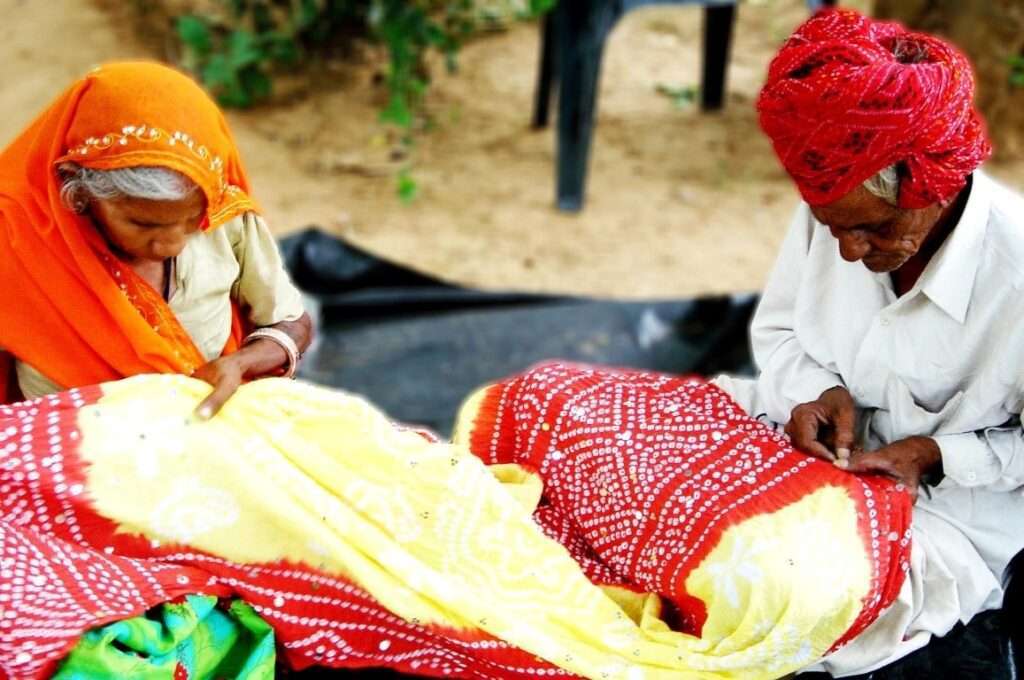
When Dastkar started the Ranthambore Project in 1991 there were 100 Bandhani workers in Sawai-Madhopur, today there are more than 2000. This Dastkar project has directly empowered over 370 craftsmen and craftswomen from villages in the area. Average monthly earnings that were in the region of Rs.500 now range from Rs. 2000 to Rs. 6000, a considerable amount in a rural economy. The project turnover was Rs.1.29 crore in 2011-2012; an exponential growth from Rs.22 lakhs 7 years earlier! New villages continue to be incorporated into the project and the craftswomen now travel all over India to sell their products at Dastkar and other Bazaars, also receiving wholesale and export orders from Europe and the US.
Beyond the economic empowerment of craftspeople provided by the Dastkar Ranthambore Project, the Dastkari Kendra also became an active catalyst for social development. Starting just as a workplace for crafts production, the Kendra soon expanded its reach by providing a venue for numerous other activities including regular workshops on legal aid, health, family-planning, gender, group-building, management and accounting. Adult literacy classes form the first half of the morning. Where, two decades ago, there was only suspicion and caste fissures, there is now a sense of community illustrating the impact of this project that goes far beyond that of commercial success.
